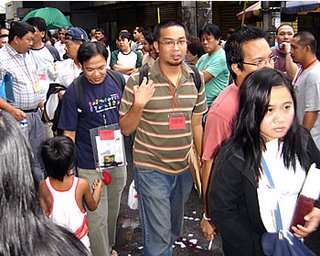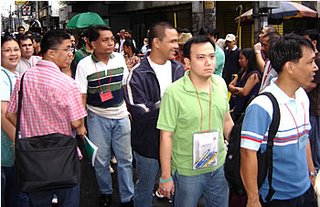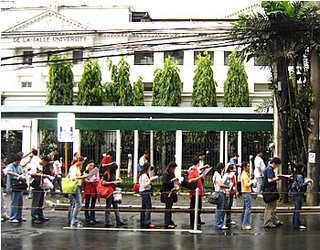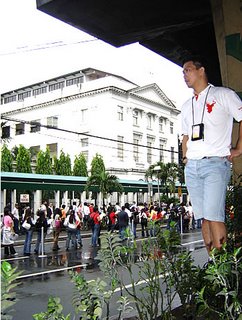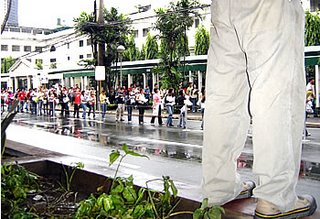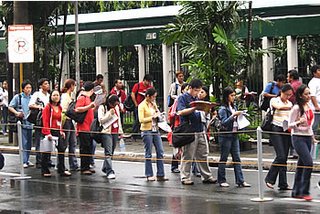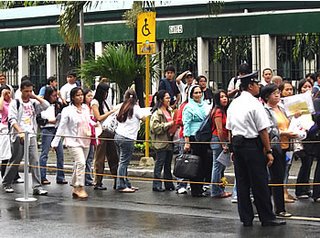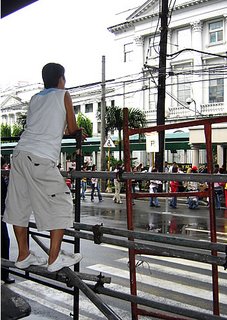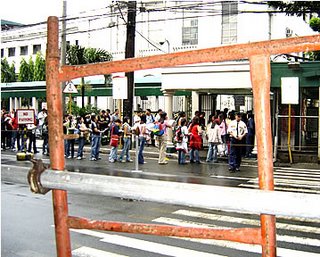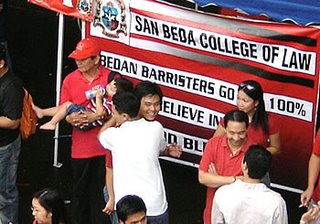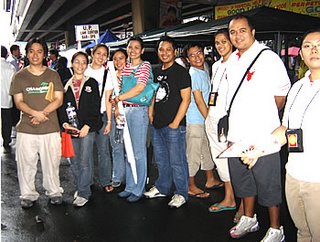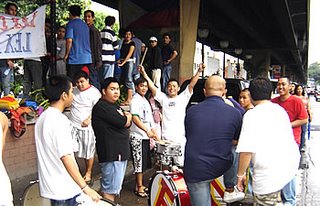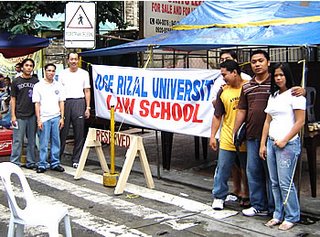To pass your law school exams now and the bar exams later on, you must do these four things: (1) master the codal provisions; (2) improve your handwriting; (3) become proficient in English grammar; and (4) learn how to write logically, clearly, concisely, and effectively.
| Update as of May 25, 2022: Free personal coaching for the first 20 law students or bar examinees to apply You can scan your law school exam booklet or bar exam booklet (Civil Law, Criminal Law, or Political Law) in PDF or JPEG format and send it to me. I will then check your answers based on proficiency in English grammar and writing. A note of caution, however: I will be totally honest in pointing out your grammar and writing errors. If your ego cannot stand being corrected, you should not avail of this free offer. After I have checked your answers, I will email to you my comments. Your answers, test booklets, or bar exam booklets will not be published in this blog or anywhere else. I will keep them confidential. Atty. Gerry T. Galacio gtgalacio@yahoo.com |
From “The bar exams: Post mortem” (Manila Standard) by Atty. Rita Linda V. Jimeno:
Many also answered, in a question about the rights of illegitimate children, that they have absolutely no right to inherit because they are illegitimate.
From Justice Estela Perlas-Bernabe (2007 bar examiner in Mercantile Law):
I could not, for the life of me, fathom how a bar candidate could describe the Trust Fund Doctrine in Corporation Law as the amount of money deposited in the bank, which the beneficiary may withdraw only when he reaches the age of majority. The worst answer, however, which I had the misfortune to come across, equated Trust Receipt to a popular contraceptive for men. If it was meant as a joke, it was not funny.
You can use my interactive reviewers on the following topics: Cloze tests on the Family Code; Flashcards: Legal Ethics; Criminal Procedure; and Evidence. (I am currently working on JPEG flashcards on Legal Ethics that you will be able to download freely and use on your smartphones and tablets.)
2. Improve your handwriting: It doesn’t matter if your answer is correct if your law school professor or the bar examiner cannot understand your handwriting.
From Bar Bulletin No. 4 “Guide and Rules of Conduct to the 2019 Bar Examinations”:
Write clearly and legibly. As a rule, writing five to six words per line significantly contributes to readability.
From Justice Ameurfina Melencio-Hererra, Chairperson of the Committee on Bar Examinations, in her report to the Philippine Supreme Court on her observations on the 1980 bar exams:
Handwritings of some are difficult to read or “decipher”. Apparently, the examinees concerned do not make any sincere or serious effort to make them readable.
A number of candidates could not write legibly. I found it hard to read their answers and much time was wasted in deciphering what they wanted to say. Bar candidates should be advised to write legibly.
3. Become proficient in English grammar:
(a) If you have already decided to go into law school after graduating from high school, a good preparatory course would be Journalism, Mass Communications, or English.
(b) Use the thousands of interactive English grammar exercises that are freely available on the Internet; one good source is “Activities for ESL Students.”
(c) You don’t have to know the various terms used in grammar such as “subjunctive mood,” “first conditional,” “bare infinitive,” etc. You just have to know whether what you’re saying or writing is grammatically correct.
(d) Improve your spelling and punctuation skills.
From “Bar Confidant: Bad English worse than error of law”
“Incorrect English is a more serious problem than the lack of precise knowledge of law and has been the cause of high failure rates.”
From “Why too many flunkers in the Bar” by Atty. Josephus Jimenez:
The grammar is wrong, the syntax twisted, the spelling incorrect. They cannot even distinguish between verb and adverb. They have forgotten their parts of speech. My God, I have been checking midterm and finals examination answer sheets since 1977 and I always suffer mental anguish, serious anxiety, and wounded feelings whenever I see how students express themselves in atrocious ways.
From “The Great Formula in Passing the Bar Exams” by Atty. Glenn M. Morte (citing Dean Wenceslao G. Laureta):
20. By far the most important tool that the bar candidate could equip himself with which to tackle the examination that is inherently personal to him is command of written English.
21. You have to write simple, grammatically correct English if you want to hurdle the examination.
From Justice Ameurfina Melencio-Hererra, Chairperson of the Committee on Bar Examinations, in her report to the Philippine Supreme Court on her observations on the 1980 bar exams:
Only in a few instances was there a command of the English language.
Require additional courses even in law school proper in the fields of English composition and grammar for those who are deficient in their ability to express and convey their ideas.
Very many examinees, to put it mildly, “murder” the English language. Some are worse than high school undergraduates.
Many candidates did not use the proper tenses. Bar candidates should be advised to be more careful with their tenses and try to aim at clarity in their answer.
The majority of those who failed in the subject have also manifestly shown their poor command of the English language, such that certain examinees may probably know the law but they lack the ability to express themselves. The results is that, one will find it very difficult to understand what they really wanted to convey in their answer to the question propounded.
In his article “Legal education and the Bar examinations,” Justice Art Brion said:
“My topmost concern relates to our educational system and the deficient high school and college preparation it has given our law students. Many of these students are ill-equipped for law school’s demands, particularly, in the use of English, reasoning and writing skills. If these students somehow survive law school, many of them would just end up joining the majority who usually become the Bar examination casualties.”
The failure of the educational system to teach grammar is a problem not only in the Philippines but also in the USA. Read, for example, “The Grammar Wars Come to Law School” by Aida Marie Alaka, Washburn University School of Law (Journal of Legal Education, 2010). “This article provides a concise overview of pedagogical shifts in language arts education over the last twenty-plus years as well as empirical studies of high school and college reading and writing skills. It thus provides insights into why basic skill errors surface in the writing of law students today.”
4. Learn how to write logically, clearly, concisely, and effectively:
Dean Ralph Sarmiento says that “passing the Bar Exams requires four L’s: Law, Language, Logic, and Layout. However, what Bar takers usually focus on is only a review of the Law, often taking the other three L’s, Language, Logic, and Layout, for granted.”
With thousands of bar examinees failing the exams every year, why then do these examinees continue to take for granted the “Language” part of their bar preparations? Bryan A. Garner (editor-in-chief of Black’s Law Dictionary) says that lawyers (and therefore law students) are bad writers because they suffer from the “Dunning-Kruger Effect.” Please read his article “Why lawyers can’t write” (ABA Journal).
Briefly stated, the Dunning-Kruger Effect states that “unskillful or unknowledgeable people (1) often think they are quite skillful or knowledgeable, (2) can’t recognize genuine skill in others, (3) uniformly fail to recognize the extremity of their own inadequacy, and (4) can recognize and acknowledge their own previous unskillfulness only after highly effective training in the skill.”
Garner contends that “the legal profession suffers from a pervasive Dunning-Kruger problem.” He says:
This is puzzling but true. While lawyers are the most highly paid rhetoricians in the world, we’re among the most inept wielders of words. Stop and think about that. The blame goes primarily to the law schools. They inundate students with poorly written, legalese-riddled opinions that read like over-the-top Marx Brothers parodies of stiffness and hyperformality. And they offer law students little if any feedback (on substance, much less style) from professors on exams and writing assignments. But there’s plenty of blame that falls elsewhere. Writing standards have consistently fallen over the last century in secondary and higher education. (It would take a full-scale book to unpack that set of issues.) For law firm associates, their senior lawyers too often decry any emphasis on writing style (“I’m just concerned with the substance of it! I leave style to others!”). And in general society, serious readers are becoming an endangered species.
What Garner said about the lack of feedback from law professors on substance and style is true in the Philippines. Very few law professors note in the exam booklets the errors in grammar and writing that students make. Thus, students graduate from law school thinking that they are good writers when, in fact, they’re not.
From “Tips in Answering Bar Exam Questions” (Accounting and Law Hub):
Keep It Short and Simple!
4-Paragraph Rule
Stick-to-One Rule
Watch your grammar
Write legibly
From “The bar exams: Post mortem” (Manila Standard) by Atty. Rita Linda V. Jimeno:
Worst, many of the examinees were unable to express their thoughts in English. The English grammar of many of the examinees could shock even a high school graduate who took his secondary education seriously. For instance, nearly a majority erred in the proper use of “is” and “are.” In one question involving two persons, “Y” and “Z,” many said “Z” and “Y” is wrong. Quite a number answered in a circuitous and incoherent manner.
From “Guidelines on how to answer essay bar questions” (Chan Robles):
The fundamental rule is that you should write in short sentences. Kilometric and long-winding, paragraph-long sentences, sometimes called “running sentences” should be avoided.
This is a good and effective formula that would avoid the commission of grammatical errors.
High-sounding, highfalutin, high-flown bombastic language and fanciful words meant to impress should be avoided. They do not add any substance to your answer. Instead, readily understandable, down-to-earth and simple words and commonly used legal parlance should be used. In this manner, the examiner will readily emphatize with you and will not get annoyed or vexed.
To learn how to use simple words and phrases instead of jargon, wordiness, formalism, and redundancies, you can work on the interactive exercises in my website “Plain English — Plain Language — Clear Writing for journalism, law, business, science, academic, technical and general writing” with resources and interactive exercises in Plain English, grammar, vocabulary, reading comprehension, etc.
Examples of some bar exam answers that show the examinees’ poor grasp of English grammar and the inability to express themselves fluently and logically:
A. From Justice Ameurfina Melencio-Hererra, Chairperson of the Committee on Bar Examinations, in her report to the Philippine Supreme Court on her observations on the 1980 bar exams:
Question No. 6 (b) – “An accused was found guilty of double murder and was meted out two sentences of reclusion perpetua. How would be the accused serve the sentences?”
Answer – “Both penalties must be served by the accused, and he was electrocuted and died then it washes out the remaining sentence to served by the accused.”
Question No. 11. – “Patrolman Cruz, acting under orders of the Municipal Mayor, Who wanted to put a stop to the frequent occurrence of robbery in Sitio Masukal, patrolled the place. At about midnight, seeing three persons acting suspiciously in front of an uninhabited house and entering the same, he arrested them without warrant and took them to the municipal building where they were detained in jail for about five hours before they where released.
Patrolman Cruz was accused of arbitrary detention. If you were the Judge, would you convict him of the crime charged?”
Answer – “No. considering his possession as peace officer by the higher authority to patrol the place where robbery are frequent. The one responsible for this is the Municipal Mayor who order without warrant of arrest and the act of the patrolman are in good faith believing to be a robbery entering a house.
So the proper party liable is the Municipal Mayor.”
Question No. 17 – “AA” was the owner of a jeepney for hire. When his driver was hospitalized, he hired “BB” as driver on a temporary basis and entrusted to him the vehicle for transporting passengers from Quiapo to Baclaran with a compensation of P30.00 a day. “BB” never returned the vehicle and after search the vehicle was found in Tarnate, Cavite, About to be sold. “BB” was charged with Qualified Theft and was convicted .
Appealing the judgment of conviction, defense counsel contends that “BB” may have committed Estafa but not Qualified Theft on the theory that the possession of the vehicle was obtained with the consent of “AA” the owner, and therefore, there was no illegal taking.
Decide the case.
Answer – “The defense counsel of the accused contention in untenable assuming now that there is no illegal taking of the jeep from “AA”. The owner but “BB” a temporary driver hired by “AA” failure to return the jeep such vehicle as now ready to be sold by “BB” have an intent to gain is theft cases as an element.
B. Atty. Raymond Fortun, well-known trial lawyer and a former bar examiner, posted (below) what he called the worst bar answer ever; despite disparaging the examinee’s poor grasp of the English language, however, he gave the examinee a passing grade for at least getting the legal issue correctly.
“Their is no charges may be charge to Anastacio by the raided police they may present evidence against Anastacio, in the first place Anastacio knew this alredy late when the raiding police surrounded the place.
The defend of Anastacio in the raiding police he is innocent regarding the shabu session. Anastasio may also protest any charges against him.
The raiding police question Anastacio regarding the time of raid that he was one arrested, by the police, to be arrested and file charges the police must during the time the place were surrounded by the raiding authority it is the routine all person during the time raided by the particular subject for interogation.
But if not establish the said crime their is no charges, and person interogated with out probale cause to detained. Anastasia may only ask by the raiding police regarding the shabu session if he has a knowelged.”
Practical advice for law students and bar examinees
If you want to pass your law school exams and the bar exams, then you need much more than a review of basic grammar. You need to immerse yourself in the structures, rhythms, and nuances of the English language. Here are some suggested ways:
- avoid thinking in Filipino (or in your dialect) and then translating into English because what you want to say or write will come out wrong; this is what linguists refer to as “L1 interference.”
- practice speaking English with native English speakers such as Americans, Australians, etc.
- study grammar through the numerous resources available on the Internet (PDFs, videos)
- work on the thousands of free interactive exercises available on the Internet
- learn correct pronunciation of English words and phrases through YouTube videos
- listen to English news programs (CNN, VOA) and repeat out loud everything that you hear
- watch English movies and TV programs and repeat out loud everything that you hear
- speak English to yourself, to your friends, classmates, officemates, etc.
- read articles from world-class publications such as Time, National Geographic, Washington Post, etc.
- keep a journal in which you can write down in English your thoughts and experiences
I also suggest that you read “Coming to America: How International Players Survived in NBA” to learn how foreign players such as Pau Gasol, Patty Mills, Anderson Varejao, Marcin Gortat, Andrea Bargnani, Timofey Mozgov, and Al Horford learned to speak English.
Do you know how Arnold Schwarzenegger learned English? He took English lessons, including accent-removal lessons; in California, he worked in a fitness store so that he could practice English. In his autobiography, he also said: “I made it a rule to date only American girls; I did not want to hang out with girls who knew German.”
Pictures from the 2006 bar exams


